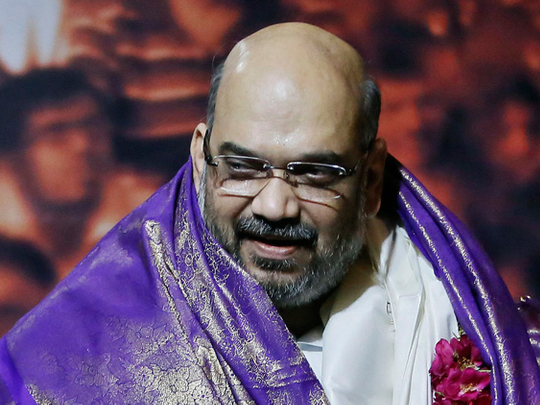
Indian Prime Minister Narendra Modi’s elevation of Amit Shah to the post of Bharatiya Janata Party (BJP) president goes against his commitment to ensuring clean and fair governance in the country.
What hope is there for the system when an individual indicted for murder assumes the top job in the country’s ruling party? How can common people find recourse in their fight against injustice, given that the BJP’s new president is due to appear in court soon and the lawyers are expected to move for the murder charges to be dropped?
It is likely that Shah will get off lightly as procedures are being stage-managed. Known to be among the prime minister’s closest aides, it appears Modi is paying off a debt to Shah, following the latter’s masterminding of the party’s election campaign, especially the resounding results recorded in Uttar Pradesh.
Is Shah now no less powerful than the prime minister? Will this convince him to act with unlimited immunity? Can the capacity of evidence that has been compiled against him, for a list of crimes — some of which are pretty repugnant — be simply wished away? Shah’s elevation smacks of arrogance. It drives home the point that an entire system can be manipulated when individuals purporting to be larger than it assume power. It is not the sort of platform upon which the prime minister must stake his reputation. He must think of the consequences of his decision before it goes down as a new low in Indian politics.








